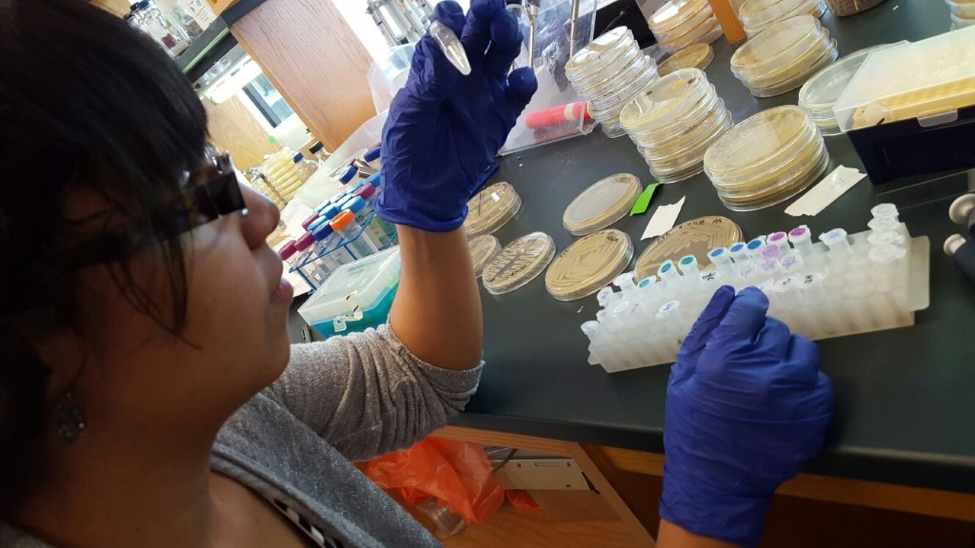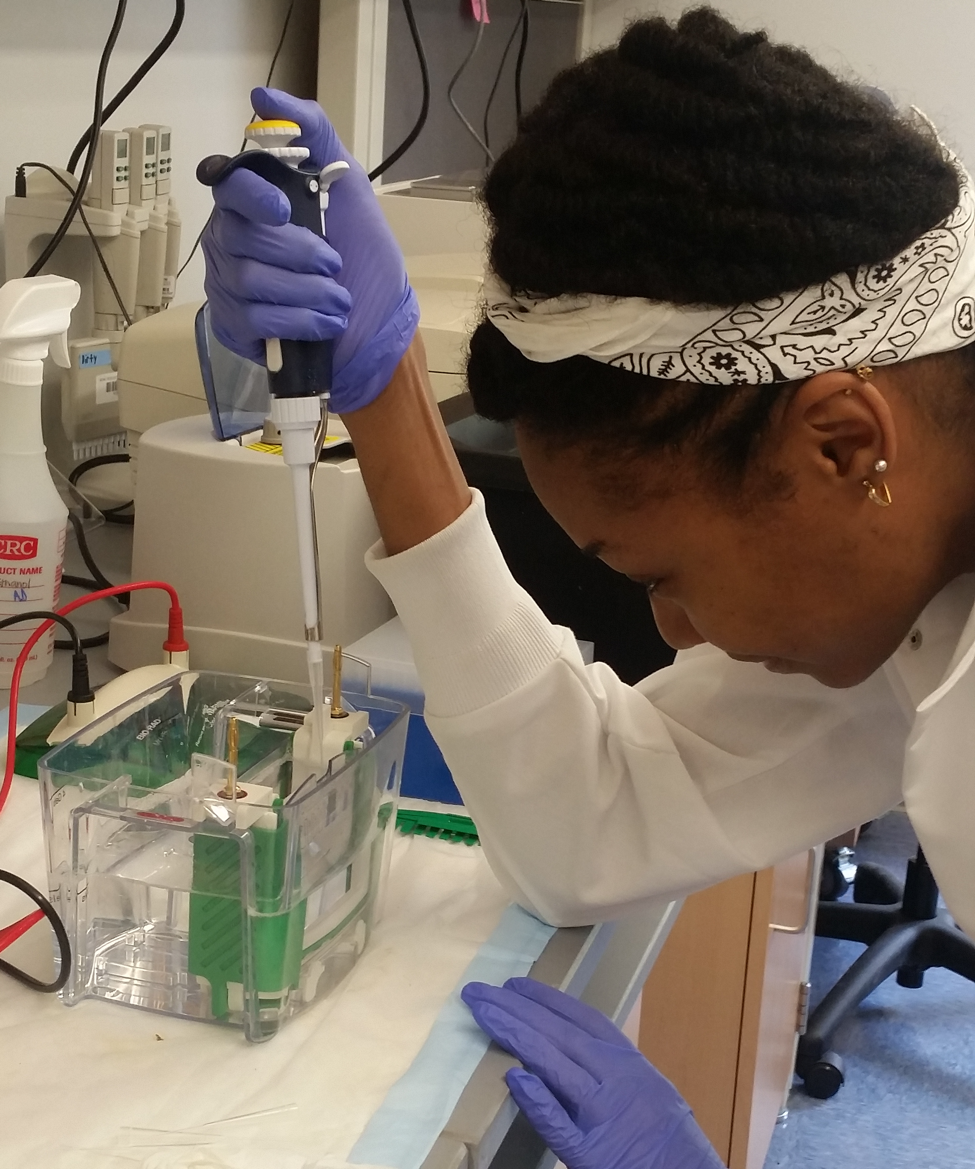Another group of college students from around the country are on Northeastern’s campus this summer taking part in Northeastern’s Biology Research Experience for Undergraduates (REU) third year. The goal of this NSF-funded program is to provide an in-depth research experience each summer for about 10 undergraduate students in collaboration with faculty researchers.
After two successful years under the direction of Associate Professors Wendy Smith and Rebeca Rosengaus, the REU program has become very established, competitive, and diverse. As Smith described, the overall goal of their program is to foster students to become more mature and independent scientists than when they started.
“We want to bring in the perspective for students to gain an understanding of what it’s like to work with a team of scientists, and how they themselves behave as part of that team,” said Smith. “It’s more than just pipetting or data entry – the emphasis on teamwork has become a distinctive component of the program that adds to the overall gestalt of the maturation of them as scientists.”
With a variety of research opportunities for the participating REU students, many Northeastern biology faculty members come together to form five distinct research teams for students to work with. Research topics include antibiotic discovery, the role of mitochondria in the reproductive system, ultraviolet damage and repair for regenerative vertebrates, mitochondrial DNA inheritance and presence in oocytes, and transgenerational immunity and cross-generational pathogenically-induced maternal effects in an insect model.
“The REU program helped me grow both as a professional and as a person. It taught me that even though science doesn’t always work (believe me when I say it doesn’t), you have to keep trying to work your way through the problem at hand,” REU student Yamilex Acevedo said. “I also learned important and useful molecular and genetic techniques that will serve me to further comprehend the wonders of microbiology and life as a whole. Northeastern and its people will always be in my heart!”
Smith and Rosengaus hope to recruit students to the program who are from underrepresented populations in the STEM fields, and/or from schools lacking doctoral-level research programs. Their efforts have created a very diverse student group, including members of the military, first generation college students, mothers, and student representation from all over the globe – even as far as Puerto Rico and Guam. Over 60 percent of students in the program are women and almost 70 percent of all students come from underrepresented populations of society.
The program’s diversity has greatly contributed to its progress and widened the scope of knowledge for their students.
“This year we have two military students who are actually enlisted and are now back in school. They have enriched our conversations because they are bringing in experiences that molded them; experiences that none of the other participants have lived through,” Rosengaus noted.
Both Smith and Rosengaus feel successful in their goal to give opportunities to a variety of students who are passionate about scientific research. With close to 400 applicants in each of the past two years, the competitive selection process is focused on identifying students that will be able to get the most out of the REU.
“It’s unusual that you lay out a program and three years later it’s accomplished a lot of what we wanted…the rockets are firing on all cylinders! It’s been so exciting to run it and we love to see how excited people are by it,” said Smith.

2016 REU Student Yamilex Acevedo, University of Puerto Rico, Mayaguez performing microbiological research at Professors Chai and Godoy’s lab. Photo courtesy of Professor Rosengaus

